Interview with the founder of the slow fashion shoes brand: Done By Matea
Since her early twenties, Matea Gluscevic has nurtured a deep-seated passion for footwear. Inspired by celebrated avant-garde designers such as Maison Martin Margiela and Vivienne Westwood, Matea always strived to find a creative outlet that not only pushed the boundaries of artistic form, but also satisfied a “very strong desire to create and problem solve”.
From artist and sculptor right through to stylist, jewellery maker and dentist technician, Matea embarked on a truly eclectic journey of self-discovery before finding her way home to artisan shoemaking: “Turns out I always come back to shoemaking! As an artisan shoemaker, all I do is create and problem solve!”
Enter Done By Matea, and Slow Fashion Shoes
And with that, Done by Matea was born; a slow fashion shoe brand that creates dreamy, fun, elaborate and infinitely beautiful styles while staying committed to slow, sustainable and ethical processes. Perfectly handcrafted and indeed striking, every pair of Done by Matea footwear is a true work of art, with designs inspired by Australia’s rich and otherworldly landscapes, the vast expanses of outer space and even sumptuous, mouth-watering desserts.
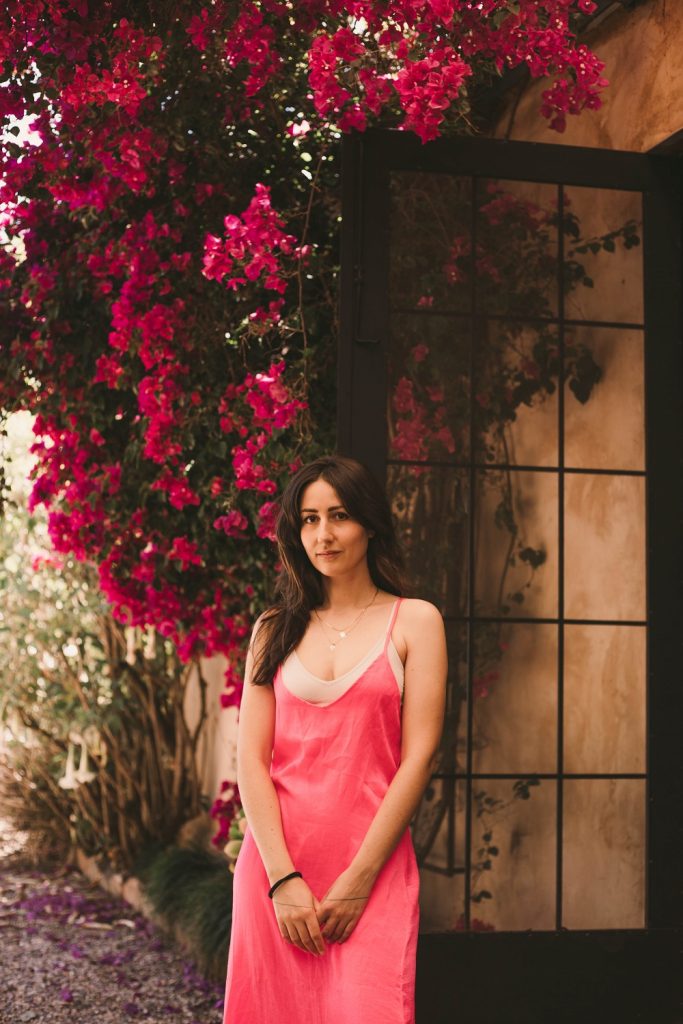
Interview With Matea Gluscevic, Founder of Done By Matea
So, Matea, let’s chat! You describe Done by Matea as a ‘slow’ fashion shoes brand, can you tell us what you mean by that?
Sure! Slow is referring to the pace of creation as well as the pace of aesthetic evolution. Shoes are handcrafted by me over a course of weeks, and my styles evolve over no set period of time – nor do they fully align with fashion seasons. New styles simply arrive when they are ready to – I’m not pushing to be on any current trend, just creating what comes to me.
I also want to make sure that the things I make will last for a lifetime, with a few repairs along the way! Plus, I only make to order so there’s zero creation of unwanted ‘things’.

We’d love to know more about why you think slow fashion shoes are important.
I think slow fashion is a really important movement because of the sheer amount of waste – resources, labour, energy – produced by the fast fashion industry.
Slow fashion is an objective movement but it’s also a change of mindset; being mindful of what we really need and value instead of consuming mindlessly. I think that mindset shift also contributes to a generally more mindful, better quality of life for ourselves.
It also encourages larger fashion brands to reframe themselves, which unfortunately does result in some greenwashing, but at least it is an incentive for them to do better.
Let’s talk about the materials you use. With an astonishing 90% of footwear thrown into landfill each year, it’s great to see your shoes are made from materials that consider the environment!
Yes! I really like to consider every aspect of the materials I use: how it’s made, what it’s made from, if it can be recycled etc.
For example, I use vegetable tanned kangaroo leather for about 80% of my footwear uppers. On the topic of vegetable tanned leather in general – which I use for insoles, soling and uppers – it is created by using natural bark tannins to cure the leather, instead of harsh chemicals.
Vegetable tanned leather also ages better and lasts longer. I try to buy as much salvaged leather as I can to help ease the demand of new leather production.

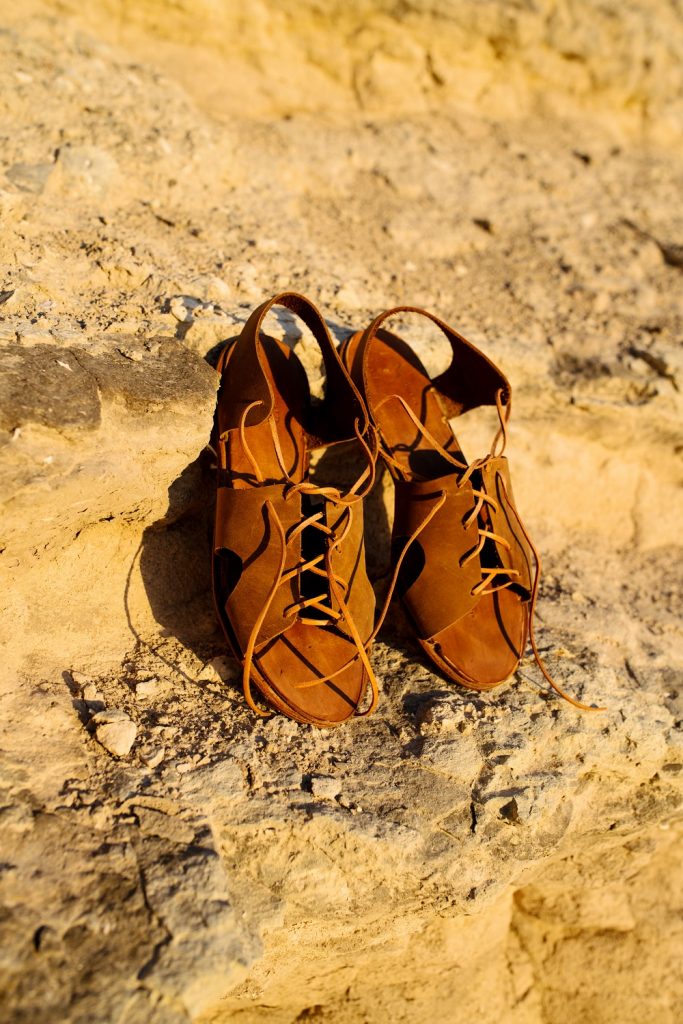

So, do you think leather can be sustainable and ethical?
I think so! But it really depends on which leather you’re using, how you use it, and your own personal stance on these things.
In my opinion, I’d say that vegetable tanned kangaroo leather is the most ethical leather available for footwear production.
Please, tell us more!
In short, since the European invasion, Australian kangaroos have had a lot less predators (dingoes and humans hunting for food), so some species of kangaroo have reached population levels where they threaten the survival of smaller species.
The Australian government closely monitors all these populations and then sets a strict quota for each state to help maintain healthy population levels.
In my opinion, this is far better than the bovine leather industry; the kangaroos get to live their lives in the wild instead of cows bred for us that live in captivity. Plus, kangaroos produce way less methane.
As for the vegetable tanned aspect, the vegetable tanning of any leather is a more sustainable option. It uses a plant-based agent (natural bark tannins) to cure the hides which results in a hard-wearing leather that ages beautifully and is actually biodegradable too.

Have you considered using plant-based leathers?
If I could, I would be using plant leathers but there simply aren’t any that I’m satisfied with that are available at the moment; they all either contain plastic additives or simply do not have the material qualities required for footwear.
There’s one amazing vegan leather actually, Reishi, made purely from mushrooms, but it’s currently only available to select makers that they partner with. I’ve definitely tried to get my hands on some!


What other materials do you use?
When I need filling type of materials for puffy things, I use biodegradable Eucalyptus fibre (made from trees) and sometimes I use Australian wool for smaller details that require felting as plant fibres don’t felt in the same way as wool.
Fabric printing I get done in Australia on either recycled plastic fabric, or organic cotton. For heels, I don’t use pre-made plastic heels, rather I make my own from Australian FSC Certified pine.
I also use recycled rubbers for soling, though that isn’t always available. I always use toluene free adhesives, and water based adhesives where I can.
And what about when it comes to choosing your suppliers?
I’m really conscious of who my suppliers are, what their sustainability practices are, as well as who they source from. I ensure they are local – ideally in my state Victoria, Australia – but at the very least in the same country.


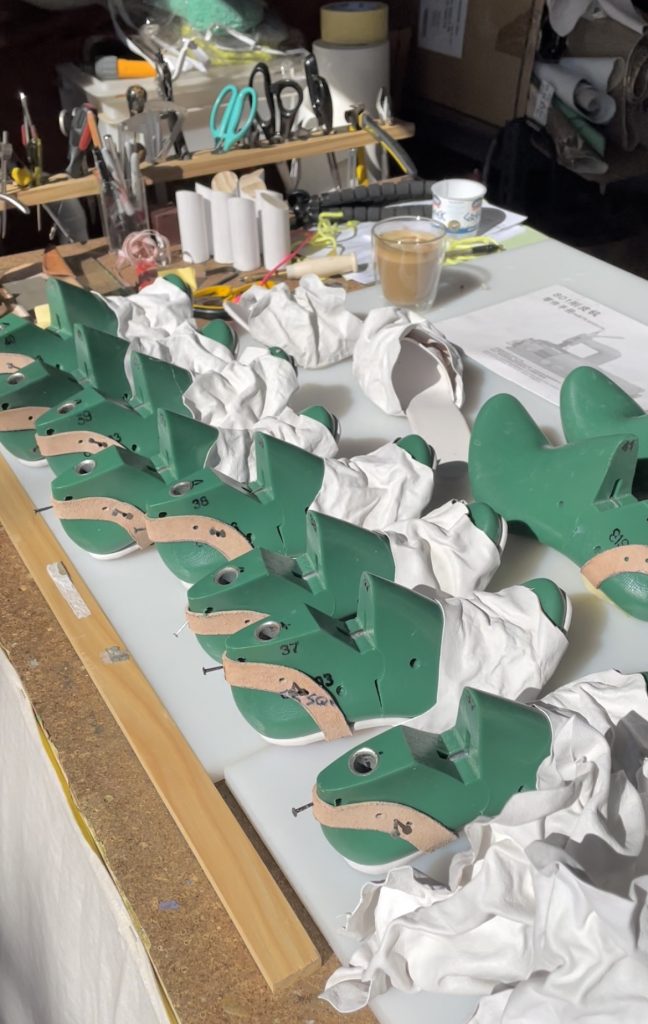
We can imagine that working as a slow fashion shoemaker doesn’t come without its challenges!
The biggest challenge definitely is that everything is up to me! Every design decision, business decision etc. – it gets pretty draining. Let alone the physical labour on top of that. The body is a limitation for sure: it can only do so much. I’m sure I’ll be looking to get an apprentice or two soon!
So, do you think there is a growing demand for handmade, slow fashion shoes?
I think since the whole slow fashion movement started there’s been more demand, and it’s slowly increasing.
I’d like to think there’s more of a desire to express individuality as opposed to status signalling with brand names, which may be driving the desire to have one-off shoes created for yourself, but I’m not sure!
There are also always people that have a particular vision they want realised, or who simply want something that fits properly.
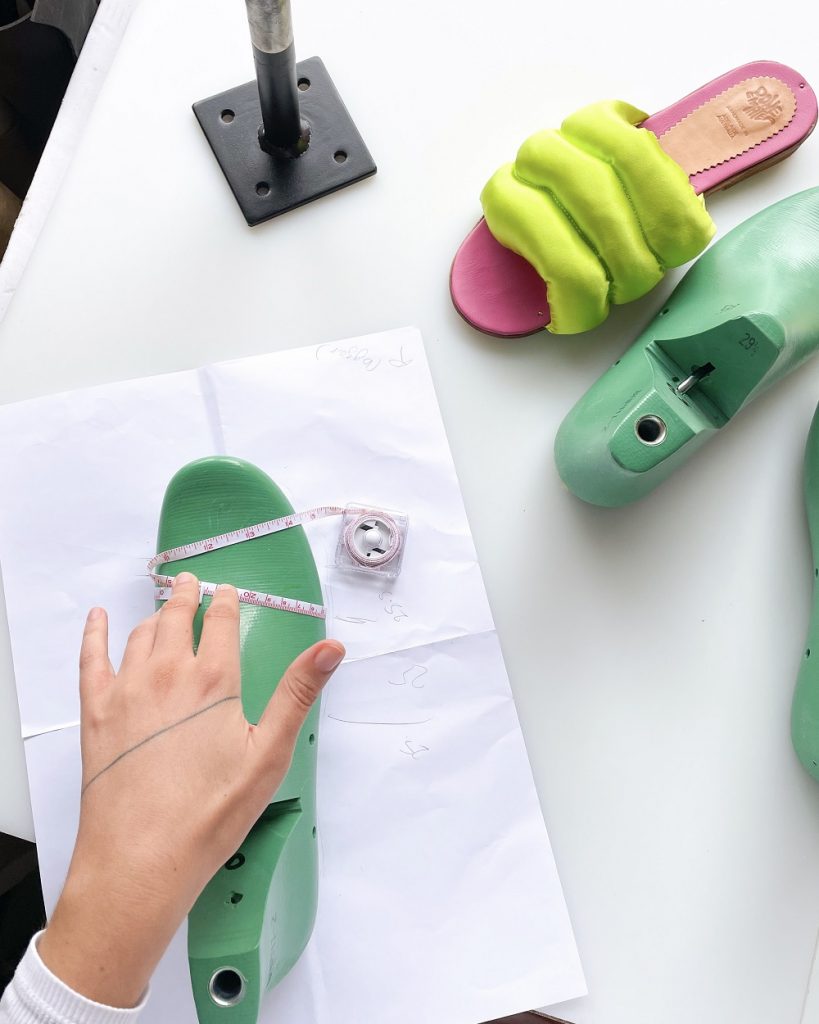

What do you think makes Done By Matea different from other slow and sustainable shoe brands?
I would say that my work differs mostly in aesthetics – I think my work aims to be more fun, unique and expressive than most of the other sustainable shoe brands I’ve come across.
In addition to that, the fact that I do create on such a small scale (small scale even relative to many other sustainable shoe brands) means that there’s no accidental waste through over-ordering of anything.
Plus, all my suppliers are Australian, and all the labour is me so it’s a really transparent business. There’s also the fact I offer custom made shoes so I can create pretty much anything you want!
No doubt your customers value the bespoke service you provide!
I would say it’s a combination of the unique aesthetic qualities of my work, the mindful approach to their creation, and offering custom made services means it’s a more personal experience. Also maybe the fact that my work is slow and sustainable, but fun too!

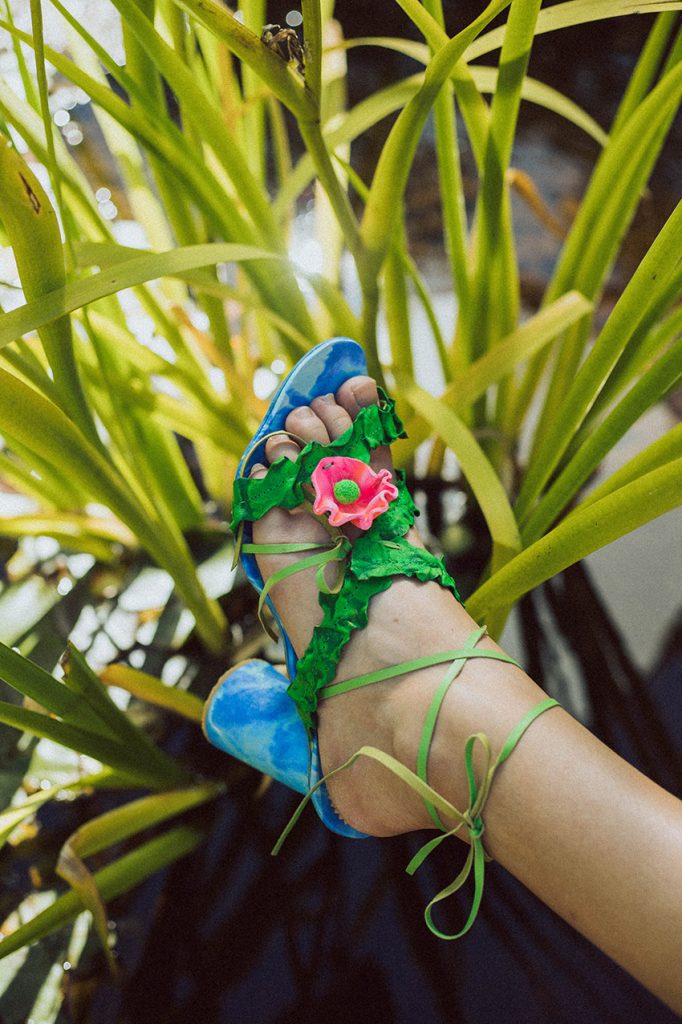

Any exciting plans on the horizon for Done by Matea?
One of my main intentions heading into the future will be to focus more on my creative expression as opposed to ensuring things are “buyable”. I’ve been a bit concerned with the “buyable” aspect when I’ve been designing and making – given I need to make sales to live, and as a result stifling my creativity somewhat. But I think I’d be happier ignoring that and seeing what happens if I just indulge my creativity completely. Who knows where it will lead!
I also want to get a bit more involved in the national and international fashion realms. Last weekend I had the unexpected opportunity of having my footwear featured on the runway for the Melbourne Fashion Festival – so hopefully more opportunities like that will come up too!
Visit www.donebymatea.com for Done by Matea’s inspiring slow fashion shoes range, custom orders service, sizing, the latest lookbooks and much, much more!
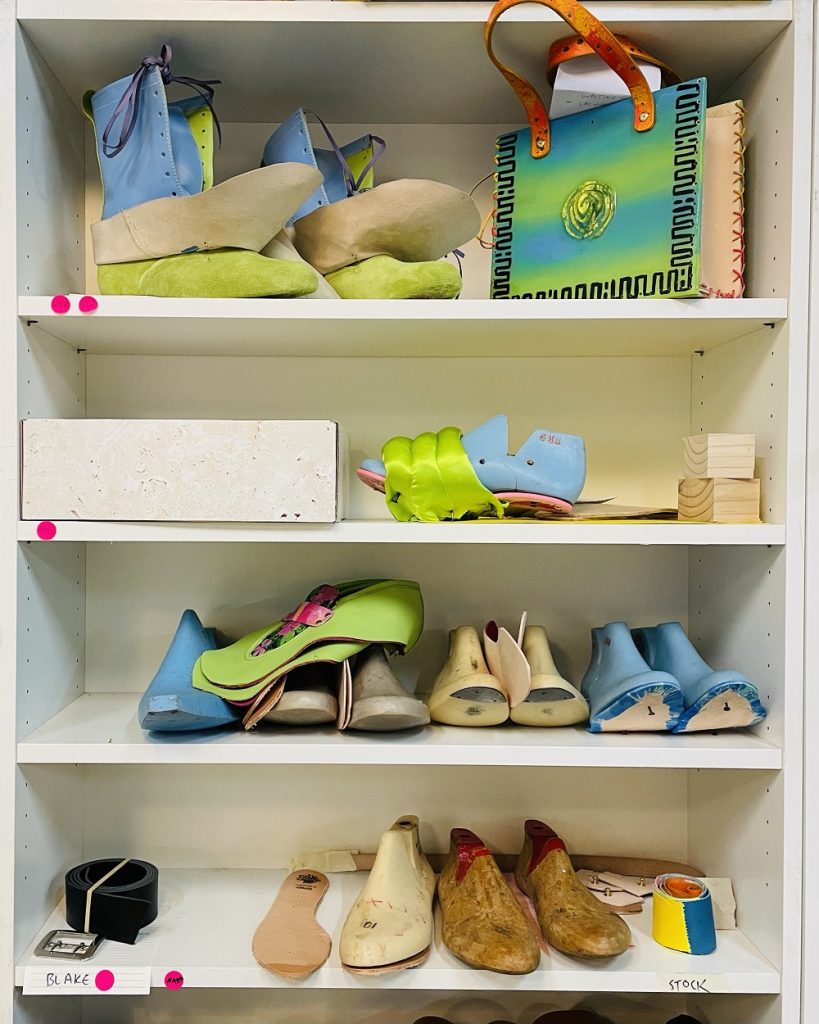
Further Reading on Slow Fashion Shoes
Interested in delving deeper into the ethical and environmental issues touched on throughout this interview? We’ve got you covered:
- Australia’s kangaroo meat trade could be the most sustainable in the world, despite welfare concerns The Guardian
- Bangladesh: Toxic Tanneries Pulitzer Centre
- A New Textiles Economy: Redesigning Fashion’s Future Ellen Macarthur Foundation
- What’s Wrong With Fast Fashion? Pebble Magazine
- Measuring Fashion: Insights from the Environmental Impact of the Global Apparel and Footwear Industries Quantis
- ‘Some soles last 1,000 years in landfill’ The Guardian
- What Your Shoes Are Doing to the World Traid